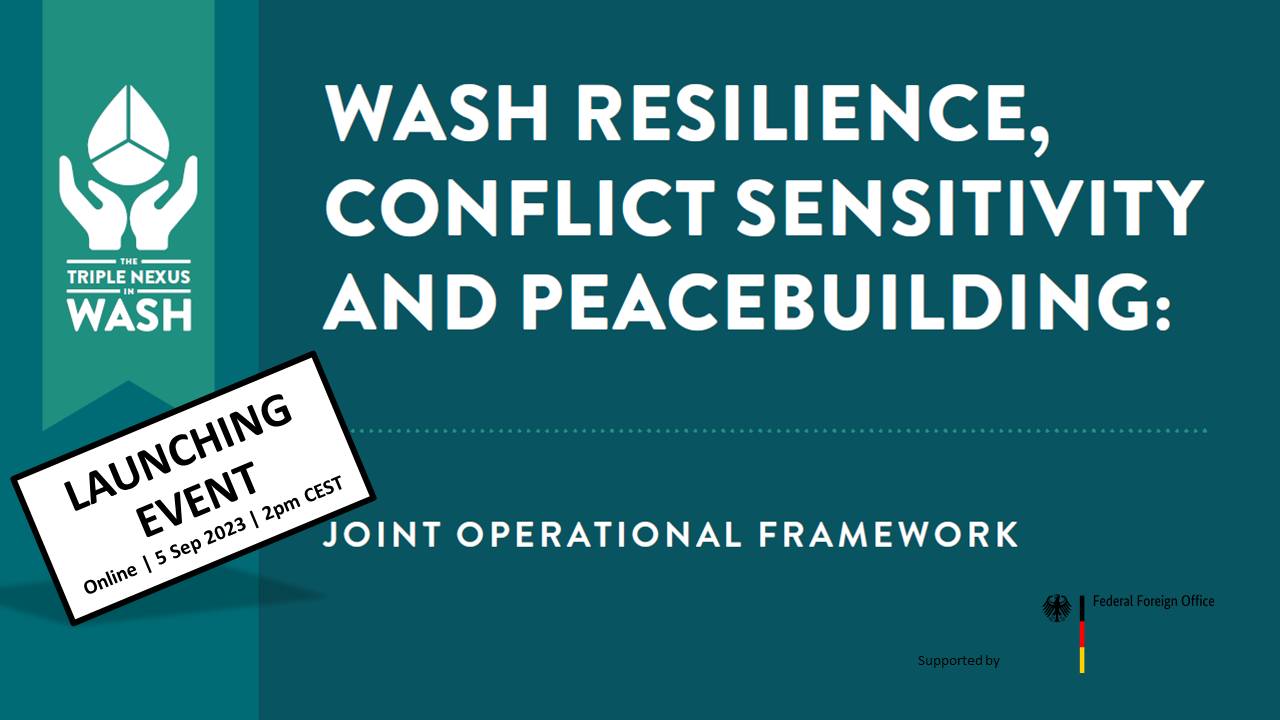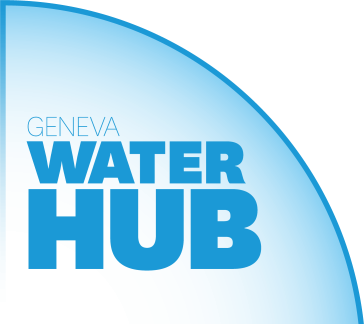
Lancement du cadre opérationnel conjoint - résilience WASH, sensibilité aux conflits et consolidation de la paix
Nous sommes ravis d'annoncer que le Cadre opérationnel conjoint (JOF) - Résilience WASH, sensibilité aux conflits et consolidation de la paix sera bientôt publié.
Le triple nexus et le cadre opérationnel conjoint sont - à la base - des actions conjointes pour des résultats collectifs. Le processus d'élaboration du cadre opérationnel conjoint a été un excellent exemple d'action collective impliquant un large éventail d'acteurs influents dans les piliers humanitaire, développement et paix. Nous tenons à remercier toutes les personnes et institutions impliquées pour leur précieuse contribution à la création du document - dans le cadre du processus d'examen approfondi ou par le biais de notre série de consultations et d'entretiens. Plus de 40 entretiens avec des informateurs clés, trois événements mondiaux, deux consultations régionales (Afrique et Asie) et un processus d'examen approfondi (45 institutions, 62 examinateurs, 364 commentaires) ont été menés au cours des deux dernières années.
Il est maintenant temps de célébrer cette étape importante pour l'initiative "Triple Nexus" dans le cadre de la feuille de route WASH 2020-25. Nous sommes heureux de vous présenter une liste d'orateurs passionnants et de haut niveau, parmi lesquels :
Les orateurs confirmés sont les suivants
- Susanne Fries-Gaier (directrice de l'assistance humanitaire, Auswärtiges Amt - ministère fédéral allemand des affaires étrangères)
- Danilo Türk (Conseiller politique principal, Geneva Water Hub)
- Catarina de Albuquerque (directrice générale, Assainissement et eau pour tous)
- Callist Tindimugaya (commissaire, ministère de l'eau et de l'environnement, direction de la gestion des ressources en eau, Ouganda).

Qu'est-ce que le JOF ?
Le JOF présente la réflexion, une théorie du changement et des étapes clés pour mettre en pratique l'approche nexus dans le secteur WASH tout en établissant des liens solides avec le secteur de la gestion intégrée des ressources en eau. Le JOF fournit un soutien pratique aux programmes WASH pour renforcer les capacités relatives à la résilience, à la sensibilité aux conflits et à la paix (lorsque cela est possible et pertinent) au sein des systèmes WASH, en appliquant l'approche nexus en combinaison avec d'autres approches programmatiques. Tirer parti du nexus signifie encourager la collaboration, la cohérence de la programmation et la coordination entre les piliers humanitaires, de développement et de paix au sein du secteur WASH, tout en respectant les mandats organisationnels et en reconnaissant que les solutions sont spécifiques au contexte et dictées par les autorités locales. L'objectif ultime est de réduire les besoins non satisfaits, les risques et les vulnérabilités des populations dans le contexte du secteur WASH, d'accroître leur résilience, de minimiser les dommages et de construire la paix.
Dans quels contextes le JOF est-il pertinent ?
L'expérience de la mise en œuvre de l'approche nexus suggère qu'elle est particulièrement pertinente dans les contextes sujets à des crises prolongées (par exemple, conflits de longue durée, insécurité hydrique) et récurrentes (par exemple, inondations, sécheresse). Dans de tels contextes, les piliers de l'aide humanitaire, du développement et de la paix collaborent pour assurer la stabilité nécessaire à la mise en œuvre de programmes à long terme. Étant donné le rôle du changement climatique en tant que moteur des conflits et des crises prolongées/récurrentes, le cadre commun de référence est également très pertinent dans les contextes vulnérables au climat.
Comment le JOF a-t-il été élaboré ?
Le développement du JOF WASH a été recommandé par l'événement mondial "Building Resilient WASH Systems in Fragile Contexts" qui a eu lieu en 2019 à Genève et a ensuite été inclus comme un résultat clé dans l'initiative de la feuille de route WASH "The Triple Nexus in WASH", codirigée par le GWN, le GWC, SWA et l'UNICEF.
Ce document est le résultat d'un processus itératif, basé sur les contributions de plus de 40 entretiens avec des acteurs clés du secteur WASH à travers les trois piliers, une analyse documentaire continue des politiques, des orientations et des études de cas, un examen technique par plus de 60 experts, et plus de 10 ateliers d'apprentissage et webinaires au niveau mondial et régional (Afrique et Asie) avec des contributions de décideurs politiques et de praticiens.

